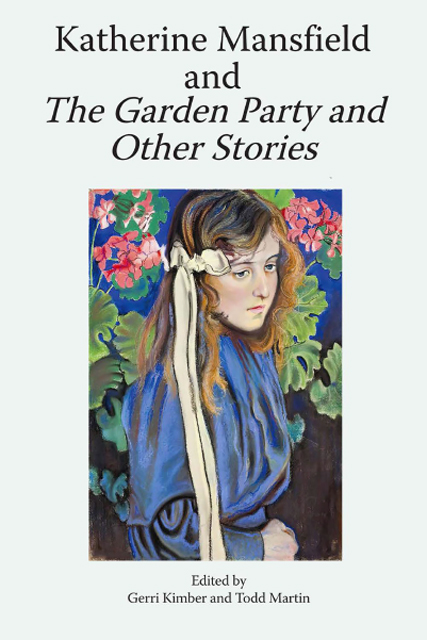Katherine Mansfield’s Desperate Housewives and Metonymic Desire
Published online by Cambridge University Press: 03 June 2023
Summary
‘[M]ake me your mistress.’
– Katherine MansfieldDespite her parents’ early efforts to shape her into a respectable Edwardian lady, Katherine Mansfield had a multiplicity of unconventional desires, many of which she unapologetically pursued throughout her short, secretive and provocative life. Still, in a 1906 teenage letter to her favourite cousin, Sylvia Payne, we see that Mansfield’s desire to determine her own destiny – and the futility of that desire – is potent:
I am so keen upon all women having a definite future – are not you? The idea of sitting and waiting for a husband is absolutely revolting – and it really is the attitude of a great many girls […] It rather made me smile to read of your wishing you could create your fate – O how many times I have […] felt just the same. I just long for power over circumstances.
Clearly, Mansfield saw traditional marriage and gender roles as obstacles to women creating their own fates and defining their futures. What is also evident in this letter is that Mansfield does not see an avenue for such ‘power over circumstances’ available to women, but she longs for it all the same.
Indeed, Mansfield’s constant condition in life was one of longing for more than the social expectations that were impressed upon women – such as heteronormative marriage and its generic domestic trappings. Her fervently desirous self is further evidenced in a 1915 letter that Mansfield wrote to her then lover, John Middleton Murry, whom she married in 1918:
I want things. Shall I ever have them? To write all the morning and then to get lunch over quickly and to write again in the afternoon & have supper and one cigarette together and then to be alone again until bed-time – and all this love and joy that fights for outlet – and all this life drying up, like milk, in an old breast. Oh, I want life – I want friends and people and a house. I want to give and to spend.
The first sentence is direct and audacious. Mansfield’s own emphasis on the word ‘want’ makes it the focus of her letter, forcefully proclaiming that what follows in her note will be more about what she desires and, indeed, she does go on to list several items: to write, to have friends, to have a house.
- Type
- Chapter
- Information
- Katherine Mansfield and The Garden Party and Other Stories , pp. 114 - 126Publisher: Edinburgh University PressPrint publication year: 2022



